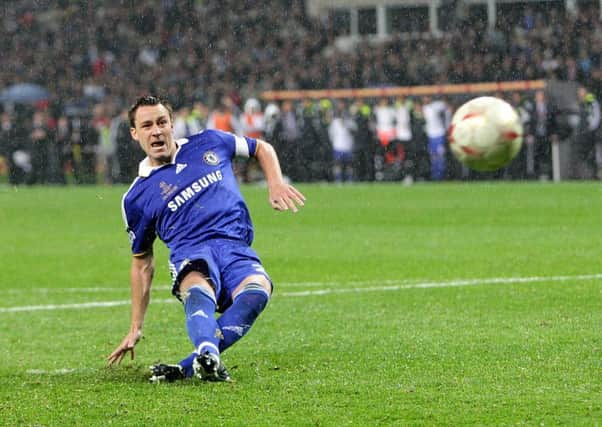Richard Sutcliffe: England head east in search of golden moments at World Cup 2018


But the Luzhniki Stadium, which will also host Thursday’s opening match between Russia and Saudi Arabia plus five others before the July 15 final, remains tied irrevocably to famous England sporting triumphs.
Daley Thompson ran, threw and jumped his way to the first of two decathlon Olympic golds at the then 103,000-capacity Moscow arena in 1980.
Advertisement
Hide AdAdvertisement
Hide AdThat same Games also saw Seb Coe and Steve Ovett go head to head in a ‘Battle of Britain’ duel that ended with the son of Sheffield triumphing in the 1500m final as his great rival took gold in the 800m.
Fast forward 28 years and another all-England affair was fought out in the re-named and, by now, fully redeveloped Luzhniki Stadium, as Manchester United and Chelsea met in the Champions League final.
United prevailed on penalties as John Terry slipped on the sodden turf when taking what, if he had scored, would have been the decisive spotkick.
He was inconsolable afterwards, the tears on Terry’s face flowing almost as easily as the Moscow rain that had poured all the way through what remains the only meeting of teams from these shores in Europe’s most prestigious club game.
Advertisement
Hide AdAdvertisement
Hide AdWhether Gareth Southgate’s side will get the chance this summer to follow in the footsteps of Coe, Ovett et al remains to be seen. But it seems unlikely.
The draw for the finals means England will have to reach the last four to play at the Luzhniki, and even then that will be dependant on the Three Lions finishing second in their group.
Otherwise, the route to potential glory includes just one game in a stadium that was redeveloped again at a cost of £350m a couple of years ago, the final.
There are a host of countries who seem far more likely to be doing battle inside Russia’s premier stadium come the second week in July. Brazil arrive as favourites thanks to an exciting blend of talent in a squad whose swagger invites comparison with the great sides of the past.
Advertisement
Hide AdAdvertisement
Hide AdHolders Germany, meanwhile, boast such strength in depth that Leroy Sane failed to make the final cut. Joachim Low’s men, like Brazil, join Spain and Argentina on the strongly fancied list.
Elsewhere, Belgium’s ‘golden generation’ must prove a fate similar to the England squad who failed to live up to an identical tag under Sven Goran Eriksson is not to be their destiny. It is, however, France who look to possess the quality to prevail in Russia.
Paul Pogba’s domestic season may have tailed off at Old Trafford but expect big things from not only him but also Antoine Griezmann and Kylian Mbappe.
As for England, this has been a heartening 12 months for the national set-up. Victory in the Under-20s World Cup last summer, the first by a Three Lions side at any level since 1966, was followed by another triumph for the Under-17s.
Advertisement
Hide AdAdvertisement
Hide AdSouthgate, whose squad in Russia includes just five of the 23 players on duty in Brazil four years ago, has gone about the job of reviving the national team in an impressive fashion.
The switch to a three-man defence in the wake of qualification being assured has made England much harder to beat, even if goals remain hard to come by against the better teams.
A place in the quarter-finals beckons, thanks in part to a kind draw that will pair Southgate’s side with one from the less than intimidating quartet of Poland, Senegal, Colombia or Japan in the Round of 16.
That said, it is almost 40 years since that Olympic duel between Coe and Ovett captivated not just this nation but the world.
Advertisement
Hide AdAdvertisement
Hide AdCommon sense may dictate that the chances of England’s sporting triumphs being added to in the Russian capital this summer is slim. But this is the World Cup and history tells us the unexpected can happen. Go well, Three Lions.